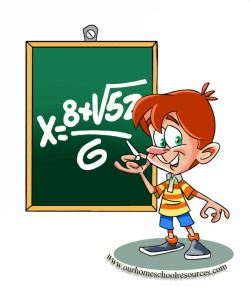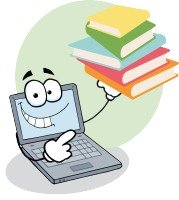Homeschool Math Curriculum for 3rd Grade
This page provides you with a sample homeschool math curriculum for 3rd grade kids. It is divided into weeks. You can adjust it according to your needs...
Week 1-2: Place Value and Number Sense
- Recognize, read, and write numbers up to 10,000.
- Understand thousands, hundreds, tens, and ones.
- Compare and order numbers.
Week 3-4: Addition and Subtraction
- Add and subtract numbers within 1,000.
- Use strategies for mental math and estimation.
- Solve multi-step word problems.
Week 5-6: Multiplication Basics
- Introduction to multiplication facts up to 5x5.
- Understand multiplication as equal groups, arrays, and repeated addition.
- Solve simple word problems using multiplication.
Week 7-8: Division Basics
- Understand division as partitioning and sharing.
- Introduction to division facts that correlate with multiplication facts learned.
- Simple word problems with division.
Week 9-10: Time and Calendar
- Tell and write time to the nearest minute.
- Calculate elapsed time.
- Understand days, weeks, and months, and use a calendar effectively.
Week 11-12: Money
- Count and use all bills and coins.
- Solve word problems involving addition, subtraction, and making change with money.
Week 13-14: Advanced Multiplication
- Multiplication facts up to 10x10.
- Begin multiplying 2-digit by 1-digit numbers.
- Introduction to properties of multiplication (associative, commutative, distributive).
Week 15-16: Advanced Division
- Division facts up to basic dividends of 100.
- Begin simple long division without remainders.
Week 17-18: Measurement
- Measure and estimate liquid volumes (liters, milliliters) and masses (grams, kilograms).
- Introduction to the concept of area.
Week 19-20: Geometry - Shapes and Attributes
- Understand and classify polygons based on attributes (number of sides, angles).
- Identify quadrilaterals, including rectangles, squares, parallelograms, and trapezoids.
Week 21-22: Area and Perimeter
- Calculate area by counting unit squares and using the formula (length x width).
- Understand perimeter as the distance around shapes.
Week 23-24: Fractions
- Recognize and generate simple equivalent fractions.
- Understand fractions as parts of a whole, parts of a set, and points on a number line.
- Compare fractions using >, <, =.
Week 25-26: Data Representation
- Solve problems using data from bar graphs, pictographs, and line plots.
- Introduction to basic probability concepts.
Week 27-28: Measurement Continued
- Understand concepts of area and relate the area to multiplication and addition.
- Solve real-world problems involving perimeters of polygons.
Week 29-30: Fractions Continued
- Understand fraction equivalence and ordering.
- Same denominator addition and subtraction of fractions.
Week 31-32: Multiplication and Division Applications
- Solving 2-step word problems using the four operations.
- Identify arithmetic patterns using properties of operations.
Week 33-34: Geometry Continued
- Recognize lines, line segments, rays, perpendicular and parallel lines.
- Identify right angles and recognize them in shapes.
Week 35: Review and Deepen Concepts
- Revisit challenging topics.
- Engage in comprehensive math activities or projects.
Week 36: End-of-Year Assessment and Celebration
- An informal assessment to gauge understanding of the year's concepts.
- Celebrate achievements with fun math challenges and games.
Consistent practice through worksheets, hands-on activities, math-based games, and real-life applications will ensure that concepts are understood deeply and retained. As always, you can adjust the curriculum according to the individual needs and pace of the student.

What's in our homeschool...
Finding the right homeschooling curriculum that best fits my children's needs was one of the most significant challenges I had when we first started our journey. I found different curricula that best suit my children's needs...
As a parent, a homeschooled reading curriculum was at the top of my mind when we started homeschooling. English was one of the requirements in our state, and what better way to learn English than to read. Getting kids interested...
There are various homeschool math curricula that you can use in your homeschooling. As for me, I use Mathletics and Khan Academy for my children. They are beneficial for us. I use Mathletics for our homeschool math ...
A homeschool art curriculum has a lot of benefits to children. This includes the development of language and communication skills, dexterity, motor skills, creativity, focus, persistence, problem-solving skills, collaboration...
Our homeschool science curriculum includes a few different things. Science is really a wonderful thing to be studied and explored. When we introduce our children to various opportunities for science learning, they will experience...



